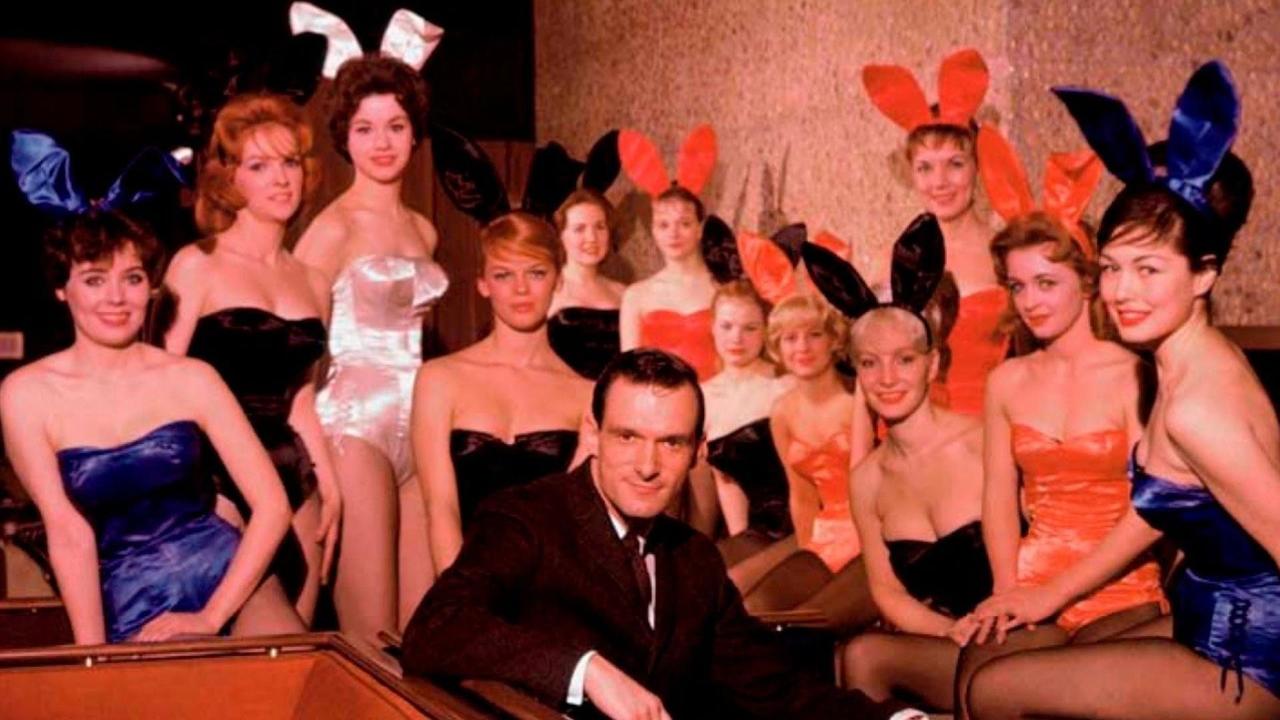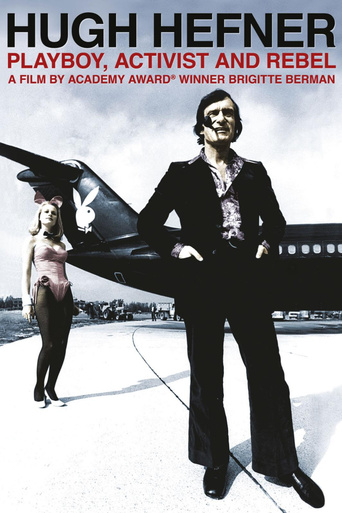Matrixston
Wow! Such a good movie.
Supelice
Dreadfully Boring
BoardChiri
Bad Acting and worse Bad Screenplay
Brendon Jones
It’s fine. It's literally the definition of a fine movie. You’ve seen it before, you know every beat and outcome before the characters even do. Only question is how much escapism you’re looking for.
Ben Larson
Love it or hate it, Playboy magazine changed the way people in America viewed sex and sexuality. Certainly, it objectified women, but they were not alone in doing so. Advertising has done an excellent job of that through the years.But, Hugh Hefner was a lot more than a magazine. He was an entertainer that did more to promote jazz than anyone I know. He was also a man who did more to promote equality among the races that most anyone in America.Entertainment was prime with Hefner, but his social activism against those, like Gene McCarthy and Charles Keating, who would impose their particular brand of morality on others.He was at the forefront of women's issues, racial issues, free speech issues and more.One of a kind and a fascinating man to listen to.
Danny Blankenship
If you've read "Playboy" you know that it's more than a T@A magazine clearly after reading one can say it's thought provoking and it makes one think. As many articles are one's fighting for freedom and expressing opinions of social, economic, political, and values of advice. Really the magazine educates you and in the meantime your always treated to photos of beautiful ladies. And in a way this doc is a treat as it tells the history of the Playboy empire and showcases the founder the interesting and culture crusader activist Hugh Hefner.From rare vintage footage of Hef's early days growing up director Brigitte Berman shows how eager and hard working that Hef was to express his viewpoints from an early age. From then after a stint at Esquire he with the help of some family money put up his own new magazine titled "Playboy". At first in the mid 50's a very controversial time Hefner had to blend the magazine with art, stories of fiction and advice to take away from the nude photos of beautiful women.Yet thru out this doc in interviews with Hef and many others you hear how it wasn't an exploitation of women, but more of an experience of freedom and sexual rights for both men and women. And of course all of that came under attack from the religious right and extreme feminists. Even thru it all Hefner has been under investigation from the federal government yet Hef always fought on winning his court cases proving his photos and literature was often satire.Hef proved as Playboy expanded his launch was super by putting in clubs even having his own jet as the mansion moved from the Windy city to Hollywood, California fun in the sun! Always surrounded with beautiful playmates, and fun and games plus movie night(Hef's a film buff) and lingerie parties! In the meantime on his show "Playboy After Dark" Hefner fought for human rights taking on racial issues and the right to freedom of speech as Hef and his performers always took a provocative stance. And Hugh was always the man very flamboyant by dressing in his signature silk robes.Real treats on this doc are the clips and interviews from his friends, and well known people like Tony Bennet, Pat Boone, Dick Cavett, George Lucas, Jesse Jackson, Bill Maher, Jenny McCarthy, Gene Simmons, and Shannon Tweed. All spoke highly of their friend. Really this doc is revealing it traces the whole history of the Playboy empire.Clearly Hugh Hefner was an extraordinary pop culture icon who spoke for freedom especially he encouraged individuals to feel good about sexual pleasure and to challenge authority and don't be a yes man always question things and think as life is often thoughtful and provocative not only under the sheets, but the world around is interesting too with it's social, political, and economic climates. Hugh Hefner will always be a living legend that changed life, culture, and a person's way of thought as one no longer had to feel dirty about sex, as "Playboy" made it an enjoyable pleasure of individualism and a great expression of feel good freedom. This doc really stands up to it's name Hugh Hefner certainly is a true rebel and activist.
misterdom
I had the chance to assist a projection in Boston where Director Brigitte Berman was present, coming from Europe and being in my late 20ies there was not much I knew about Hefner besides it's contribution to the sexual revolution of America and the rest of the world.As a consequence, the movie was full of revelations for me, jumping from one fight for freedom from Hefner and his team to another. The director beautifully manages to catch the mindset of Playboy's manager soul behind the bunnies, at a much deeper level.What especially stroke me was the ability of the director to constantly depict the paradoxes between Hefners' primal/liberal way of thinking about sexuality and it's philosophical fights for everyone's freedom and culture. You get to discover a man pursuing his dreams through is entire life and get to discover a revolutionary mindset where pleasure and great achievements are not necessarily unrelated.Hefner is not yet in any of our (at least Europeans) history books but like him or not, he deserves to be and I would advise anybody, who like me, is missing that piece of history to run see this documentary.
FilmRap
Filmmaker Brigitte Berman won an Oscar for her documentary film about iconic musician Artie Shaw. Hugh Hefner is a great jazz aficionado and founded the acclaimed Playboy Jazz Festival which is how they had occasion to meet and get to know each other. Berman decided that she wanted to make a documentary about Hefner but one, which shows the largely unknown side of the man who in most people's minds represents the Playboy lifestyle of beautiful women and lots of sex. Hefner liked the idea of such a film and gave Berman free access to his vast archives as well as participating in extensive interviews with her. Friends of Hefner such as James Caan, Tony Bennett, Dick Cavett, Joan Baez, Jessie Jackson, Jim Brown, Bill Maher, Dick Gregory and others also gave very fascinating interviews. What emerged in the two hour and 4 minute film was a picture of a hardworking man who was determined to be a success. He loved women (many women) and did not believe that he was demeaning them by making them sexual objects. More to the point of the documentary, he had a sense of fairness and acceptance that was completely color blind at a time when much of the country and certainly the entertainment industry was not. He did not allow discrimination towards blacks to occur in his Playboy Clubs and commonly showcased black entertainers on his after hours TV shows. Interviews with Jessie Jackson, Jim Brown and Dick Gregory were extremely clear on this point. Hefner also did not hesitate to have writers, who were blacklisted as communists or communist sympathizers by the nefarious Senator Joseph McCarthy, to continue to write for Playboy magazine under their own name, which was unheard of at that time.He also had blacklisted performers on this television show. This film is not only enlightening about these contributions of this man but it also is quite entertaining as it includes wonderful clips of Sammy Davis Junior performing as well as ad-libbing on the Hefner TV show. There was a young Tony Bennett performing in his relaxed style. We saw a beautiful Joan Baez singing and youthful Pete Seeger doing his thing with some injected clips of the craggy older Seeger reflecting on the significance of Hefner's support of him and his causes. James Mark Stewart provided an excellent original score for the background of most of the movie There are a few counterpoints to the Hefner's views about sexuality and the Playboy life style which are periodically presented in the film by such people as Susan Brownmiller, Pat Boone and others. They are shown as weak rebuttals, at times almost humorous. It is clear that this film is an admiring tribute to Hefner now in his 80s. Ms. Berman director, producer, writer and editor told us that Hefner was extremely pleased and touched after seeing the documentary. The filmmaker said that she wanted to show him objectively as he really was which led me to ask her if there was anything in the film that Hefner didn't like? She said no. The film comes to an end with Hefner being true to his philosophy and reinventing himself after two marriages by now having seven intimate girlfriends which he then cuts down three. There is a very revealing statement by this older guy reflecting on his life. He indicated that he understands that his outgoing life style of loving and enjoying many women has to do with the fact that his parents were very cold and rejecting. In fact as a child he says he was never hugged. Even though he has had a very successful life, it is sad to see the lingering effects of what has been missing from his childhood.

